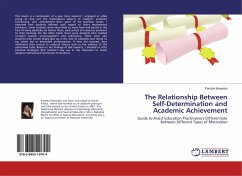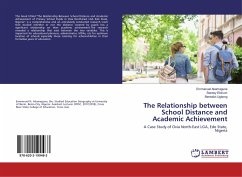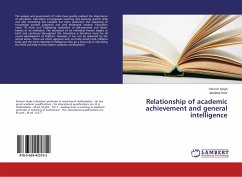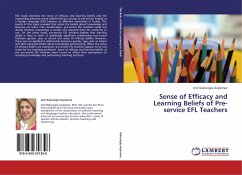
The Relationship Between Self-Beliefs And Academic Achievement
Why The Best Home Or School Environment Or Even Teacher's Expectations Only Limit The Student's Academic Achievement
Versandkostenfrei!
Versandfertig in 6-10 Tagen
41,99 €
inkl. MwSt.

PAYBACK Punkte
21 °P sammeln!
In response to the seemingly pervasive and intractable question of the academic achievement gap between minority Black and Hispanic students on the one hand and their urban white counterparts on the other, most scholarly efforts have hitherto been directed at the so-called hard variables such as family structure and family process, the student's environment both at home and at school and the socio-economic status of their parents as the likely culprits. Taking a cue from other studies that have attracted little scholarly and which have showed students pointing at psychological factors as havin...
In response to the seemingly pervasive and intractable question of the academic achievement gap between minority Black and Hispanic students on the one hand and their urban white counterparts on the other, most scholarly efforts have hitherto been directed at the so-called hard variables such as family structure and family process, the student's environment both at home and at school and the socio-economic status of their parents as the likely culprits. Taking a cue from other studies that have attracted little scholarly and which have showed students pointing at psychological factors as having the greatest effect on their academic achievement, this study set out to examine the influence of two of such factors - perceived self-efficacy and locus of control - on two identical groups of students. The consistent difference in the scores between these two groups of students on the instruments devised to measure the two factors identified the so-called soft variables - perceived self-efficacy and locus of control - as trumping all other factors and as worthy of more attention by researchers as well as stakeholders in education.












